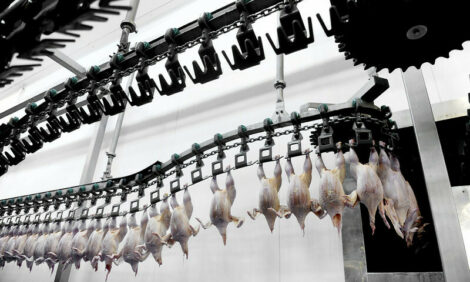



Seoul Food 2017 Highlights US Processed Pork, Branded Beef
SOUTH KOREA - With a focus on US processed pork and branded US beef, USMEF continued to build on its successes in South Korea by distributing information and handing out samples at Seoul Food 2017.Funded by the USDA Market Access Programme (MAP), the Pork Checkoff and the Beef Checkoff Programme, USMEF sponsored a pavilion that displayed US pork and beef products and attracted many of the show’s 55,000 visitors.

"Consumers in Korea are looking for more variety and more options, which is why we put special emphasis on processed pork items and branded beef products," said Jihae Yang, USMEF director in Korea.
"As the popularity of US pork and beef has grown, consumers are learning about more types of products and the retail, foodservice and restaurant sectors in Korea are eager to be able to offer them.
"Seoul Food is the perfect place to reach decision makers in the food industry who are searching for new products."

USMEF’s booth hosted Smithfield Foods, Hormel Foods and Oscar Mayer. Each company displayed US pork products and conducted sample tastings. New sausage items were very popular with Korean food industry representatives, noted Mr Yang. US processed pork brochures with detailed product details and supplier information were given to Seoul Food participants.

US branded beef – including products from Meyer Natural Angus, Aurora Beef, Sterling Silver, Cedar River Farms and Star Ranch – was also displayed in the USMEF booth, with US branded beef brochures available to visitors.
Samples of US pork belly, Boston butt and processed pork items like sausage, ham, bacon and pulled pork were offered throughout the show, as was US beef chuck eye roll, chuck clap tail and branded beef items.
Korea has been a top-performing market for both US pork and beef this year, but USMEF and the US red meat industry aren’t willing to rest on past successes.
"Seoul Food is still the best venue to introduce US meat and meet face-to-face with the largest food companies in Korea," said Mr Yang.
"We were not only able to sample new products that will help meet demand of both businesses and individual consumers, we also learned what those businesses and consumers are interested in and what kind of products they will be looking for in the future."






